Mapping out reform in the 'deep end'
- By Li Shen
 0 Comment(s)
0 Comment(s) Print
Print E-mail China.org.cn, November 12, 2013
E-mail China.org.cn, November 12, 2013

Editor's note: The eyes of the world have been on Beijing since the Third Plenary Session of the 18th Central Committee of the Communist Party of China (CPC) was held from Nov. 9-12.
The Third Plenary Session of the 11th CPC Central Committee, held in 1978, launched China's reform and opening-up policy. In 1993, the Third Plenary Session of the 14th CPC Central Committee established the socialist market economy with Chinese characteristics strategy, bringing years of hesitation over market participation to an end. The Chinese economy then entered a sustained period of rapid growth.
The Third Plenary Session of the 18th CPC Central Committee came as China's reform entered the "deep end" after 35 years of development. A series of new, far-reaching reform measures and policy orientations will be introduced.

China.org.cn presents you with opinions from China and abroad on the upcoming comprehensive reform.
|
|
 |
 |
|
 |
|
Liu Changsong is a lawyer with Jierui Law Firm in Beijing and a commentator on legal affairs. |
Wu Jianmin is vice-chairman of the China Institute for Innovation and Development Strategy. |
Mei Xinyu is a researcher at the Chinese Academy of International Trade and Economic Cooperation, Ministry of Commerce. |
Shen Dingli is the Associate Dean of Fudan University's Institute of International Studies. |
Heiko Khoo is a radio producer specialising in documenting public opinion. He is also a columnist, video producer, historian and a well known public speaker in London. |
|
|
|
|
|
|
John Ross is Senior Fellow of Chongyang Institute for Financial Studies, Renmin University of China. |
Tim Collard spent 10 years in China, serving as a trade and investment adviser and a political analyst in the UK Diplomatic Service. |
Eugene Clark is Distinguished Professor, China University of Political Science and Emeritus Professor, University of Canberra. |
Di Dongsheng is vice director at the Research Center for China's Foreign Strategy Studies, Renmin University of China. |
-------------------------------------------------------------------------------------------------------------
|
|
|
The problem with the petition system is not the system itself, but the executive process. Hence, reform of the petition system must proceed simultaneously with reform of the judicial system to ensure judicial relief becomes a reliable way of solving disputes. In this way, the problem of excessive petitions can be solved. >> |
|
|
|
China's economy will be more open in the new era because opening-up can enable us to better learn from world civilization, better integrate with the world and better solve all kinds of conundrums facing us. >> |
|
|
|
The Third Plenary Session of the 18th Communist Party of China (CPC) Central Committee, as expected, attracted much domestic and global attention upon its conclusion on November 12. On the release of the official communiqué, one of the major questions being asked by media and analysts is what the session means to the world economy. >> |
|
|
|
The decision to establish a national security committee as reached by the Third Plenary Session of the 18th Communist Party of China Central Committee is an important milestone in the country's drive towards modernization. >> |
|
|
|
The Third Plenary Session of the Chinese Communist Party's Central Committee reiterated that China remains "at the primary stage of socialism." The fundamental economic principle remains unswerving adherence to the dominant role of public ownership in the economy. However, markets are to be allotted "a decisive role" in the allocation of goods and resources. >> |
|
|
|
The key economic decisions at the recently concluded Third Plenum of the Chinese Communist Party's Central Committee are clear. "Marketization" has been emphasized - previous party documents talked of the market playing a "basic" role while the new formula is markets should play a "decisive" role. >> |
|
In the Chinese political cycle, the Third Plenary Session of the CPC Central Committee is probably the most significant event for China-watchers. It is at this point in the cycle that the political and economic program is announced. It was at this point thirty-five years ago that Deng Xiaoping astonished the world by announcing the change of course which gave rise to the reform and opening up policy, whose success was to astonish the world even more. >> |
|
While it is true that the world today is much more inter-connected and global economies are increasingly intertwined, it is a mistake to assume that the path to economic prosperity and general development is the same for every country. >> |
|
As an ancient Chinese proverb goes, "Governing a big country is as delicate as frying a small fish." As the Third Plenary Session of the 18th Central Committee of Communist Party of China (CPC) draws near, various forecasts have been made. However, it is not worthwhile to speculate about specific potential reform policies; we should focus instead on the leadership's thinking. This can help us understand China's political, social and economic growth over the next decade. >> |



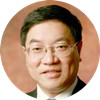



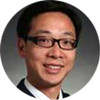
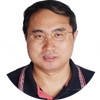
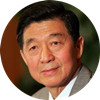






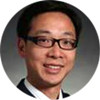




Go to Forum >>0 Comment(s)